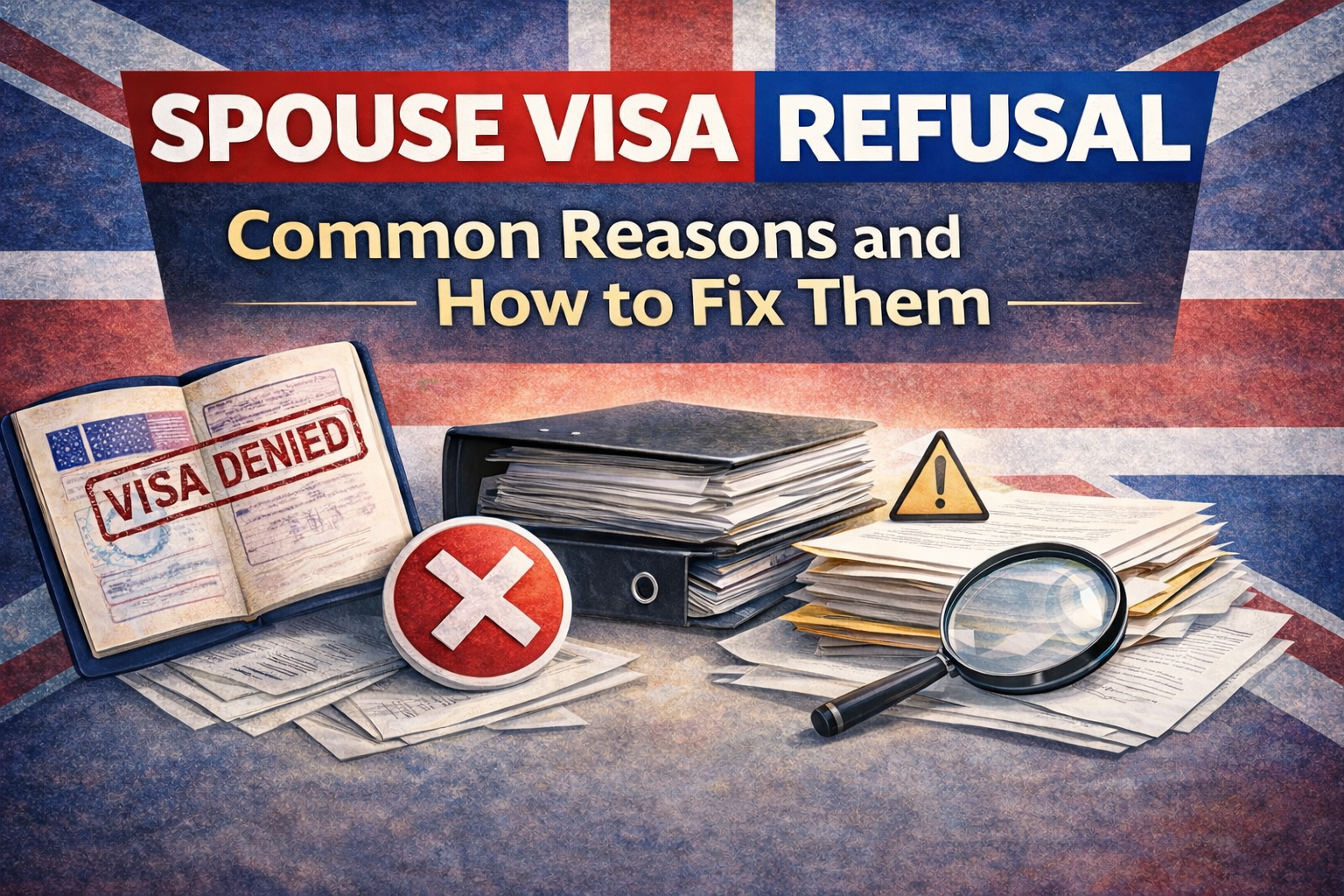Receiving a visa refusal can be stressful and confusing, especially when you have invested time, money, and effort in preparing your application. The good news is that a refusal does not always mean the end of your journey. Depending on your case, you may be able to request an administrative review or lodge a full appeal. Understanding the difference between these two options is essential to protect your rights and avoid unnecessary delays under the UK’s 2025 immigration rules.
What Is an Administrative Review?
An administrative review is the process of asking the Home Office to reconsider its decision. It is available when you believe the refusal was caused by a factual or procedural error, rather than a disagreement with immigration law itself.
From October 2025, the administrative review system continues to apply to most in-country and out-of-country applications where there is no right of appeal. This includes Skilled Worker Visas, Graduate Visas, and some Family or Partner routes.
When to Use an Administrative Review
You should consider an administrative review if:
- The refusal letter identifies a specific casework or decision-making error.
- Your documents or information were misinterpreted or overlooked.
- You met the requirements of the Immigration Rules, but the Home Office failed to recognise this.
- You received an incorrect points calculation under the Points-Based System.
How to Request an Administrative Review
- Submit your request online within 14 days (in-country) or 28 days (out-of-country) of receiving the refusal.
- Provide a clear written explanation of the error.
- Include supporting evidence only if you are correcting something the Home Office misunderstood in your original application.
- Wait for the outcome, which usually takes 28 days, though it can take longer during busy periods.
The administrative review process does not involve a hearing, and you cannot provide new evidence unless it is directly relevant to an identified mistake.
What Is an Appeal?
An appeal allows an independent tribunal to review your case if you believe the Home Office decision breaches your rights under the Human Rights Act 1998 or EU Settlement Scheme rules. Appeals provide a wider opportunity to challenge immigration refusals and can include presenting new evidence and witness testimony.
When to File an Appeal
You can usually appeal if your refusal involves:
- A human rights claim, such as family or private life under Article 8.
- A protection claim (asylum or humanitarian protection).
- A decision under the EU Settlement Scheme.
- Certain revocations of protection status or deportation orders.
Appeals are handled by the First-tier Tribunal (Immigration and Asylum Chamber). From October 2025, tribunal reforms introduced new digital filing systems, meaning evidence and hearing bundles must now be submitted electronically before the hearing date.
Appeal Deadlines
- 14 days for in-country refusals
- 28 days for out-of-country refusals
Missing these deadlines can end your right to appeal unless there are exceptional circumstances.
Key Differences Between Administrative Review and Appeal
| Feature | Administrative Review | Full Appeal |
|---|---|---|
| Who reviews the case | Home Office caseworker | Independent immigration judge |
| Evidence | Limited to original application | New evidence can be presented |
| Hearing | No | Yes |
| Timeframe | Usually 28 days | 6–12 months (can vary) |
| Legal representation | Optional | Strongly recommended |
| Cost | Lower | Higher |
Administrative reviews are quicker and less costly but limited in scope. Appeals, while longer and more formal, provide a more comprehensive opportunity to present your case and challenge a refusal on broader grounds.
Which Option Is Best for You?
Your next step depends on the reason for refusal. If the Home Office made an obvious error or misread your evidence, an administrative review may be the fastest way to resolve it. However, if your refusal is based on a dispute over eligibility, human rights, or the interpretation of immigration law, a full appeal is usually the more effective route.
What Has Changed in 2025
- The October 2025 Statement of Changes reaffirmed the administrative review process but strengthened scrutiny on repeat or unmeritorious requests. Applicants making multiple review attempts without new evidence risk refusal without reconsideration.
- Tribunal procedures now use digital case management for evidence upload, reducing paper submissions and allowing online hearings.
- Legal aid remains available for certain asylum and human rights appeals, but not for standard administrative reviews.
- Applicants switching visa routes after a refusal must ensure compliance with the new RQF Level 6 and £41,700 salary threshold if moving into a Skilled Worker category.
Legal Advice Before Requesting a Review or Appeal
It is vital to seek legal advice immediately after a refusal. A solicitor can help assess whether the decision contains legal or factual errors, determine which route applies to your situation, and prepare the strongest possible challenge. Acting quickly ensures you meet strict deadlines and avoid overstaying your visa while awaiting the outcome.
How Hi Solicitors Can Help
Hi Solicitors specialises in representing clients through both administrative reviews and immigration appeals. Our team examines the refusal notice, identifies procedural or legal errors, prepares appeal bundles, and provides representation before the tribunal when necessary. We ensure that your challenge follows the correct process under the latest 2025 immigration rules.
Frequently Asked Questions
What is the deadline for an administrative review?
You must apply within 14 days if you are in the UK, or 28 days if applying from abroad.
Can I submit new evidence during an administrative review?
Only if it clarifies or corrects something that was previously misunderstood by the Home Office.
How long does an appeal take in 2025?
Most appeals take between 6 and 12 months depending on the tribunal schedule and case complexity.
Do I have to leave the UK during an appeal?
If you lodged your appeal before your visa expired, you can normally remain in the UK under Section 3C leave while awaiting a decision.
What happens if both the review and appeal fail?
You may still have options to reapply or seek judicial review if there are legal errors in the decision-making process.





